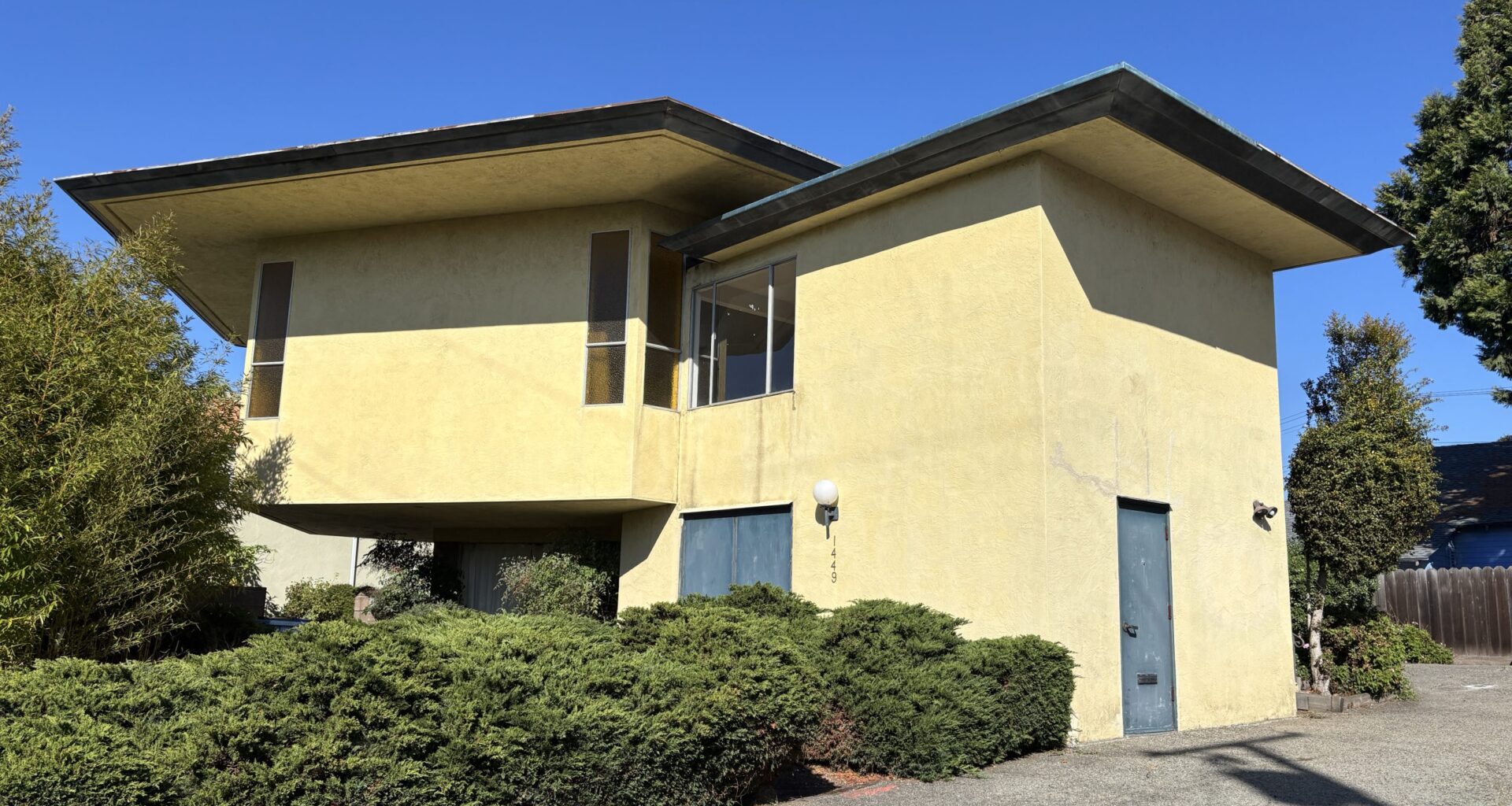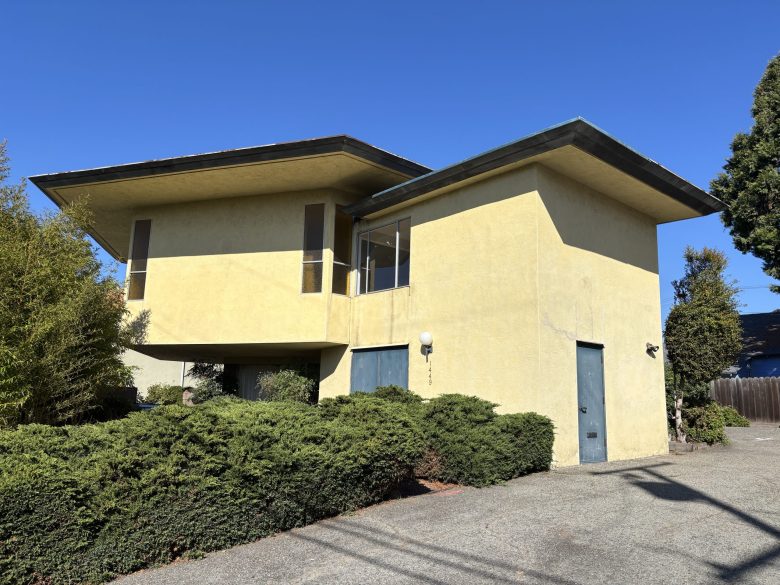 The Church for Today building at 1449 Cornell Ave. Credit: Zac Farber
The Church for Today building at 1449 Cornell Ave. Credit: Zac Farber
At its height, Church for Today — founded in 1957 by theologian, educator, and music promoter the Rev. William Hazaiah Williams, Jr. — was a sonically vibrant, multiracial hub in Northwest Berkeley. The church’s long-running concert series showcased Black opera stars and classical musicians. In the 1970s, a young Barbara Lee, now mayor of Oakland, had a spiritual and ethical awakening in its pews. Later, in the 1990s, church leaders were charged with fraudulently using money taken in for the concert series toward personal expenses.
Now, Church for Today’s longtime building is set to be knocked down, making way for a trio of single-family homes.
A firm tied to Bay Area developers Joey and Peter Consos purchased the property in December for $1.05 million and intends to raze the church building at 1449 Cornell Ave.
Many Bay Area churches have undergone transitions in recent years, as skyrocketing housing costs remake neighborhoods and religiosity declines. These repurposed church buildings take many forms, from roller rinks and art galleries to a multi-story residence in South Berkeley and a condo complex in North Oakland. Some congregations are doing the repurposing themselves: St. Paul AME Church on Ashby Avenue, for instance, is developing its old offices into a 52-unit affordable apartment complex.
The Rev. William Kruse, who has pastored Church for Today since 1999, explained that his congregation chose to sell after years of dwindling membership. The congregation currently has around 20 regular members, he noted, but no regular meeting place.
“We are in transition, and there are no clear-cut pathways at this time,” Kruse said.
Schismatic beginnings and classical music making
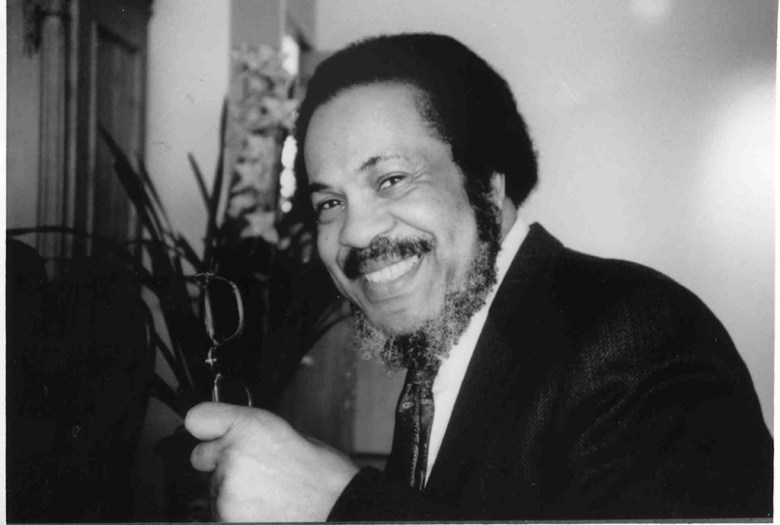 Hazaiah Williams. Courtesy: Church for Today
Hazaiah Williams. Courtesy: Church for Today
Church for Today was born from turmoil at another congregation: South Berkeley Community Church, or SBCC, one of the nation’s first intentionally interracial churches.
Williams graduated with a master’s degree in theology from Boston University in 1955 (alongside contemporary and classmate Martin Luther King, Jr.). He soon relocated to San Francisco and was ordained as minister of SBCC in May 1956. Within months, however, conflict ensued. Williams accused white parishioners — including associate pastor Fred Stripp — of eavesdropping and racism.
In November 1956, 21 SBCC members successfully won a restraining order against Stripp, barring him from preaching. Three months later, however, the court threw out the case. Stripp was reinstated, and Williams resigned, his standing as a minister revoked by the Congregational Church.
Undeterred, Williams established the Church for Today, bringing dozens of SBCC members with him. “He split [SBCC] down the middle,” Stripp told the Daily Californian Magazine in 1981.
The fledgling congregation initially met at Berkeley’s Finnish Brotherhood Hall before constructing its own building on Cornell Avenue in 1962. Like SBCC, Church for Today defined itself as multicultural, interdenominational and justice-oriented. And from his church’s earliest days, Williams built a reputation for bringing exceptional music to Berkeley and beyond.
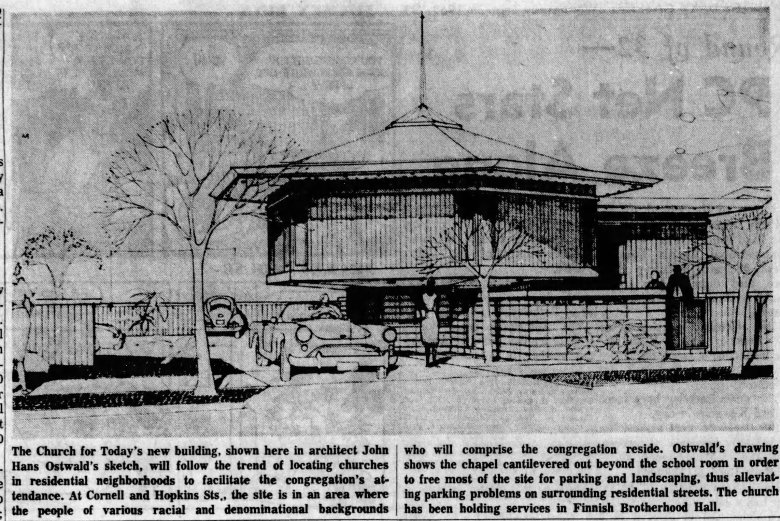 A sketch of Church for Today’s building published in the Sept. 26, 1962, edition of the Berkeley Gazette. Credit: Newspapers.com
A sketch of Church for Today’s building published in the Sept. 26, 1962, edition of the Berkeley Gazette. Credit: Newspapers.com
A classically trained pianist, Williams’ career as a music promoter began in 1958, when he co-sponsored a San Francisco performance of barrier-breaking contralto Marian Anderson. Soon, through his long-running series, Today’s Artists Concerts, Williams hosted a diverse array of artists, from flamenco performer Agustin Castellon Campos to South African songwriter Miriam “Mother Africa” Makeba.
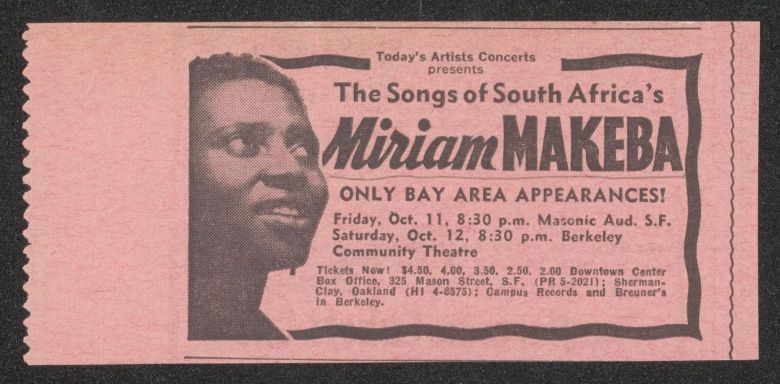 Credit: Northwestern University Library
Credit: Northwestern University Library
By 1964, the Oakland Tribune was describing Williams as “the most unusual and perhaps most significant music impresario in the Bay Area.”
In time, Today’s Artists expanded its reach, with a music festival on the Oregon Coast and regular performances in New York. In 1987, Williams produced “The Art of the Spiritual” at Carnegie Hall, bringing a lineup of traditional slave songs to the venue for the first time.
Civil rights and a financial scandal
Alongside Church for Today and the concert series, Williams was committed to the civil rights movement. In 1969, he established and was president of the Center for Urban-Black Studies at the Graduate Theological Union. That same year, he was elected president of Berkeley’s school board and was a fierce proponent of integrating the city’s schools.
Williams saw Black churches as perhaps the central force for racial equality. “We are on the brink of something never seen before,” Williams told Jet magazine in 1971. “There is a dawning consciousness in the Black church that Black power is no mythology.”
In 1997, four organizers of Today’s Artists — including then-associate pastor William Kruse — were indicted on charges of defrauding hundreds of benefactors and were sentenced as part of a plea bargain to repay $1.6 million and serve five years’ probation.
About 300 people loaned the group $6 million in the belief it would be used to take older folks to concerts or help struggling musicians, but much of it was instead transferred into organizers’ personal accounts and used to pay their mortgages and for other personal expenses, according to the district attorney’s office, which accused the group of running an “elaborate confidence scam.” (Kruse declined to comment. A case against Williams was dropped after charges were filed.)
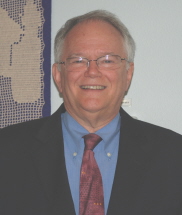 William Kruse. Courtesy: Church of Today
William Kruse. Courtesy: Church of Today
Kruse first encountered Williams while he was studying at the Graduate Theological Union. In 1977, Kruse came on as one of the associate pastors at Church for Today.
Another figure who entered Williams’ orbit during this time: Barbara Lee, well before she entered politics. In her 2008 memoir, Lee describes arriving at Church for Today in her early 20s. Amidst a season of personal despair, she found inspiration in Williams’ preaching and person.
He was a “true revolutionary,” Lee wrote. “[He] strengthened my conviction that I should make a lifelong commitment to public service.”
In 1999, Williams died from diabetes complications at age 68. Soon, Kruse assumed the role of primary pastor. Under Kruse, Church for Today continued its “Ministry for the Elderly,” serving seniors in nursing facilities, Berkeley neighborhoods and adult education programs, according to the church.
Church considered converting building into housing itself before deciding to sell
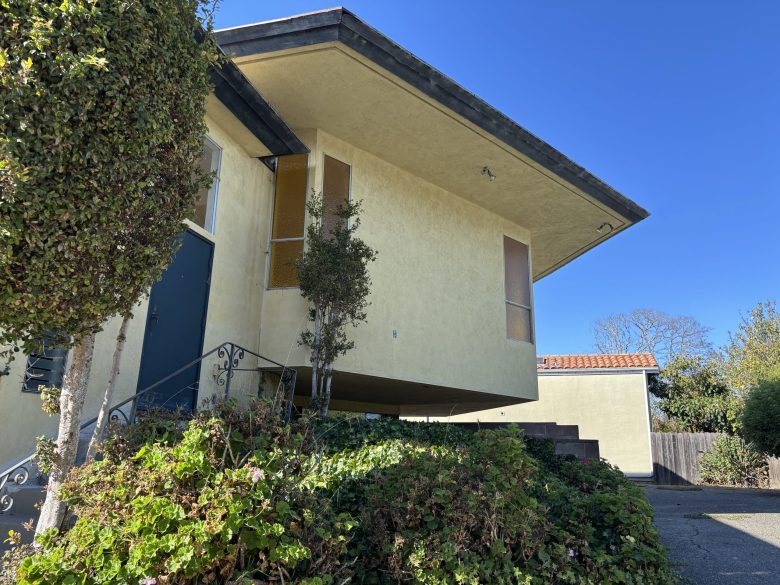 The back side of the Church for Today building. Credit: Zac Farber
The back side of the Church for Today building. Credit: Zac Farber
Like many Bay Area congregations, Church for Today struggled in recent years, contending with plunging membership and donations. It’s unclear to what extent the indictments in the 1990s affected membership numbers. Kruse cited closure during the pandemic as a major factor in the church’s decline.
In 2024, the remaining members agreed to sell their building. “We decided the space should be used,” Kruse said. Other Berkeley congregations are building housing on their land, and Church for Today explored that, Kruse said. “But we just decided to sell the property outright.”
While the church’s building will soon be gone, the concert series continues. In 1994, Today’s Artists Concerts became the nonprofit Four Seasons Arts, which continues to host an annual recital series. Many staff members are connected to the church, including Concert Administrator Janet Warzyn, who is also Kruse’s wife.
Hayden Royster is a playwright and journalist from Oakland who writes at the nexus of belief, culture, technology and the wilderness. He is a 2025-26 reporting fellow for the Religion News Service and Interfaith America. Find him on Bluesky at @haydenroyster and at haydenroyster.com.
We know that most readers don’t get to the end of the article. But you did! To support our in-depth, rock-solid reporting, please consider making a donation to our nonprofit newsroom today. We rely on our readers — particularly the ones who read the whole story!
“*” indicates required fields

